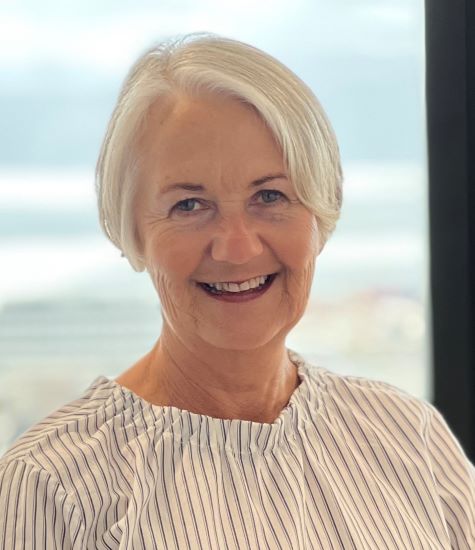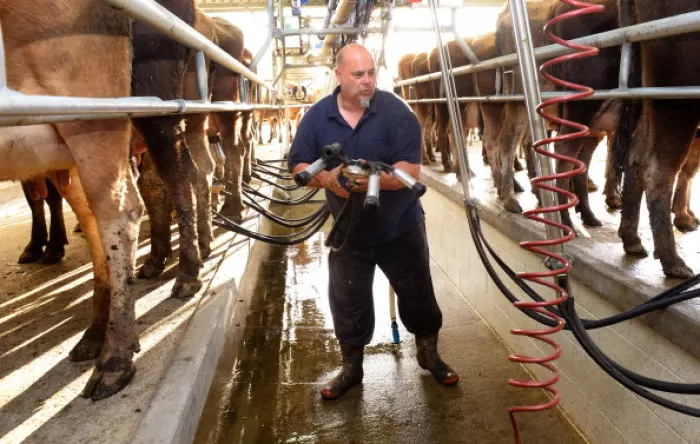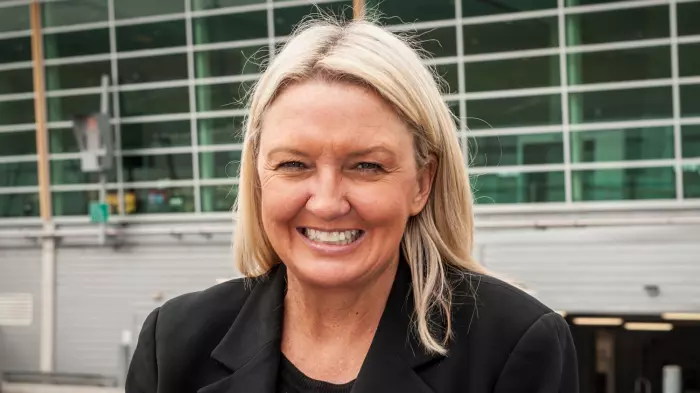One word describes Debby Butler’s job: “big”.
The inspector general for regulatory systems at the Ministry for Primary Industries (MPI) has a formidable load of reviews on her work programme that was set in 2020.
The slate includes reviews as specific as “pest and disease readiness planning” and the more general “cost recovery”.
Reviews of the regulations for large dairy manufacturers and of the Agricultural Compounds & Veterinary Medicines Act are included along the way.
Put simply, it is Butler’s recently appointed mission to ensure the rules and regulations governing our primary industries are working and being followed.
“It’s a unique role in New Zealand, introduced in 2019 by Ray Smith, the current director-general, who was relatively new at that time,” Butler told BusinessDesk.
“Going back a few years, the Productivity Commission had released a large tome berating government for not stewarding their systems in a terribly good way.
"Out of that, Treasury decided to put in place a range of guidelines for agencies to follow describing their systems and with four-yearly reviews.”
Hence Butler’s current role.
“My remit is to identify regulatory risk, challenges and tensions, offer insights into where MPI could increase regulatory performance, and be transparent to the public.”
She relishes the work.
“It’s a unique opportunity to make a difference for NZ. This is the first job I’ve loved in my whole career.
“I can’t tell you how many days I get up thinking, ‘I am so interested in what I am learning and what I can offer.’
"For me, the end result has to be better for everyone, and I love that.”
Simple and pragmatic
She puts that enjoyment and her process down to a single character trait: “It is curiosity, fundamentally – an interest in how systems work. I am outward-facing and interested in what we are giving back to NZ: ‘Is it worth it? Does it have value?’
“I have an interest in simplifying things if possible, and am very pragmatic. You won’t find me bringing a theory to work and saying: ‘You have to put this into play.’
"I will say, ‘Here is a theory – how would that work in practice, and what does good look like?’
“I've also got a strong risk radar that has come about from working in internal audit and risk management.”
 Inspector general Debbie Butler is outside MPI’s senior leadership team. (Image: supplied)
Inspector general Debbie Butler is outside MPI’s senior leadership team. (Image: supplied) To look at Butler’s to-do list is to be reminded that MPI is about much more than things that eat grass and grow.
“You’ve got several major systems – biosecurity, agriculture, food safety, fisheries, forestry and animal welfare,” she says.
“It traverses everything you will do in your daily life, the food you eat and the systems that give you access to important products. Not just food, but also things like weed killers. The fish you catch in your boat on the weekend or get at the supermarket.”
The first item ticked off on Butler’s list was the review of the food safety system for large dairy manufacturers.
It was completed in 2020 and is available online along with the business response to it.
It’s a thorough and lucid document.
Butler says she “tried to capture the history, so it is clear what we had fixed. In this area I was asking: are we doing good for NZ? Are our exporters getting value from the regulatory environment? Do we set the bar too high? Is compliance too onerous?”
It concludes: “Overall, the food safety regulatory system for dairy manufacturing remains effective and fit for purpose,” while also recommending stronger governance.
Three prongs
Getting a look at things down on the farm has not been straightforward during the covid pandemic.
“I take a three-pronged approach,” she says. “First I do a ‘desktop discovery’. I have a mandate from the Director-General to access any information in relation to what I’m doing within the organisation.
“Then I identify some key people and talk to the deputy directors general responsible to get their picture of what issues might be in play.
"Then, depending on the type of review it is, I will talk to external stakeholders, because there is no point doing a review unless you know if you are making a difference.
“If you are too internalised, you won’t pick up on the key issues, like what the regulations require and how the systems and processes behind the scenes operate.
“And then you have to find out if that is working.”
Covid restrictions meant that for her dairy report she visited two co-operatives, while for the agricultural compounds and veterinary medicines review she identified 27 different players "and most of that contact was by way of Teams or Zoom”.
After that much effort, how does she know her work will have any real-world results? That link in the chain belongs to others.
“The role I play is to lift up for the business any matters that are preventing what the act was designed to do.
"The Director-General receives my report and the senior leadership team will discuss the findings. Then it is up to the business, and Ray will direct them to come back with an action plan,” Butler says.
Autonomy and difficult questions
Here it is important to emphasise her independence, given she is in one sense employed by the organisation she is being asked to monitor.
“I have an autonomous role,” says Butler.
“I am outside the senior leadership team. I don’t go to their meetings. I don’t get their emails. And I am not part of their cohort…
“My role is to think about regulatory systems. It is my responsibility to understand how they work and look at opportunities to improve them.
"To do this I have to think about the settings they are in and raise difficult questions for leaders that they might not want to hear.
“In my research on failures, I have learnt they don’t happen because one or two things are out of whack. They happen mostly when a range of things are aligned all at once. I have to ensure all the bases are covered.”
She came to MPI after long stints with the Department of Corrections and the Accident Compensation Corporation (ACC).
“Over the years, I have built knowledge in different agencies of how operations work and what to look for. That experience attunes me to issues. If I hadn’t had that experience with boards and governance and directors, it would be difficult.”
Not all reviews are created equal. “The one we did for dairy was a traditional subset of system review, from macro to micro level,” Butler says.
By contrast, with agricultural compounds and veterinary medicines she is looking at “a sliver through the system – how the Act operates in practice and how it integrates with other systems”.
A third type of review is “a broad sliver across the top of all systems, such as how MPI undertakes its investigations overall”.
Someone has to pay for all of this, which is why the cost recovery review is also in Butler’s diary.
Base funding comes from taxpayers through the government’s annual budget, but on top, businesses sometimes pay, for example, to register new trade names.
“To get something approved on that register is quite a palaver, with technical field trials and technical data that have to be assessed to be sure it’s all right for NZ,” Butler said.
“We can charge the producer for that because the benefit goes to them. I want to look at that and make sure it is fair and reasonable.”














